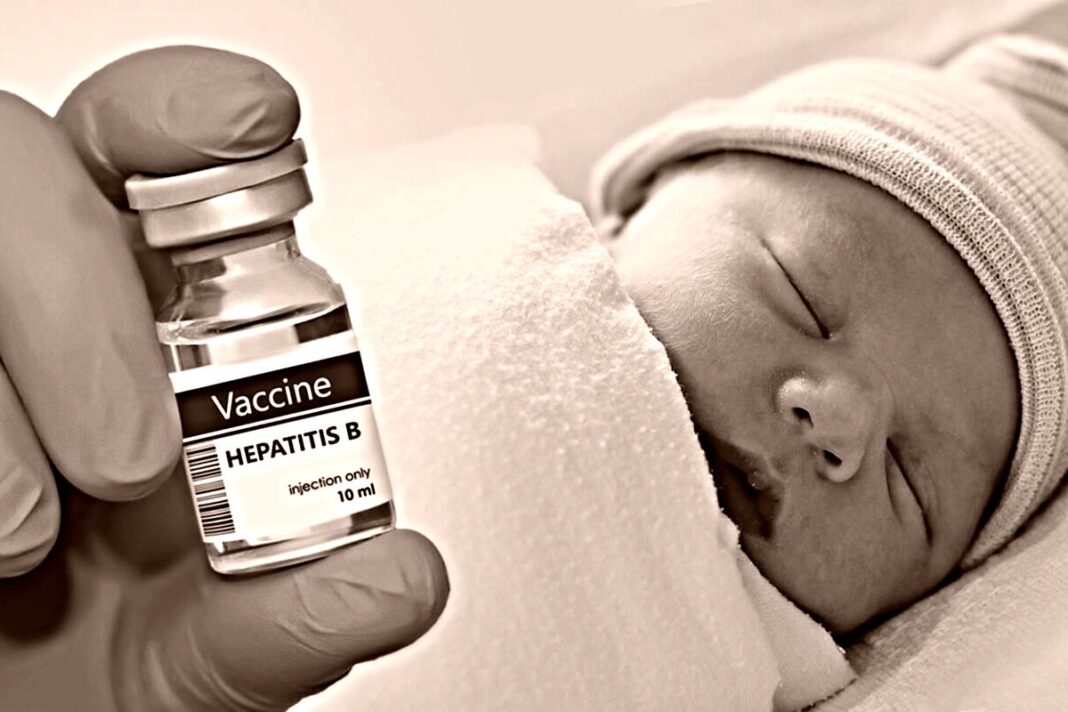The CDC says “almost all children and older adults” infected with acute hepatitis B virus recover completely with no “lasting liver damage.” So what led the CDC advisers to recommend that every baby get this vaccine on the day they’re born? Especially given the limited clinical trial data and lack of safety monitoring?
As public concern grows over the large and growing number of shots on the Centers for Disease Control and Prevention (CDC) childhood immunization schedule, several critics are sounding the alarm about one shot in particular — the hepatitis B (Hep B) vaccine.
Among the 76 vaccine doses on the schedule, the CDC recommends that every infant born in the U.S. get their first dose of the Hep B vaccine on the day they are born. Studies show that more than 90% of infants typically do so.
By age 24 months, most of those infants have received the recommended three doses of the vaccine.
Hepatitis B is a liver disease caused by the hepatitis B virus (HBV), which can range from a mild, short-term, acute illness lasting a few weeks to a serious, long-term, chronic infection.
The virus is transmitted through bodily fluids, most often via intimate contact such as sex or sharing intravenous (IV) drug equipment. Being an IV drug user is the most common risk factor for the disease.
Infected pregnant mothers can also pass the disease to their infants, but relatively few do — about 25,000 pregnant women per year, or 0.69%, have Hep B, and about 1,000 of them pass it to their babies, according to the U.S. Department of Health and Human Services.
The CDC says, “almost all children and older adults infected with acute HBV recover completely with no lasting liver damage.”
Women can be tested for the disease to see if their babies would benefit from vaccination, but that’s not what the CDC recommends.
Instead, today the Hep B vaccine is required for children to attend either childcare, school, or both, in every state except Alabama.
School-age children don’t fit the profile of those at risk for contracting Hepatitis B. Also, the CDC has no evidence that Hepatitis B has ever been transmitted in a school setting, according to a records search posted on Substack by attorney Aaron Siri, who made the request.
Siri argues the Hep B mandate is about profit, not about protecting children from a contagious disease.
“The Hepatitis B vaccine is a case study in agency capture,” Siri wrote. All children would not be required to take the shot, he said “if pharma didn’t stand to earn billions through a wider mandate of this product.”
The Hep B vaccine market, valued at more than $8 billion in 2023, is projected to grow to over $13 billion by 2032, with the U.S. making up the largest market for the vaccine, Fortune Business Insights reported.









